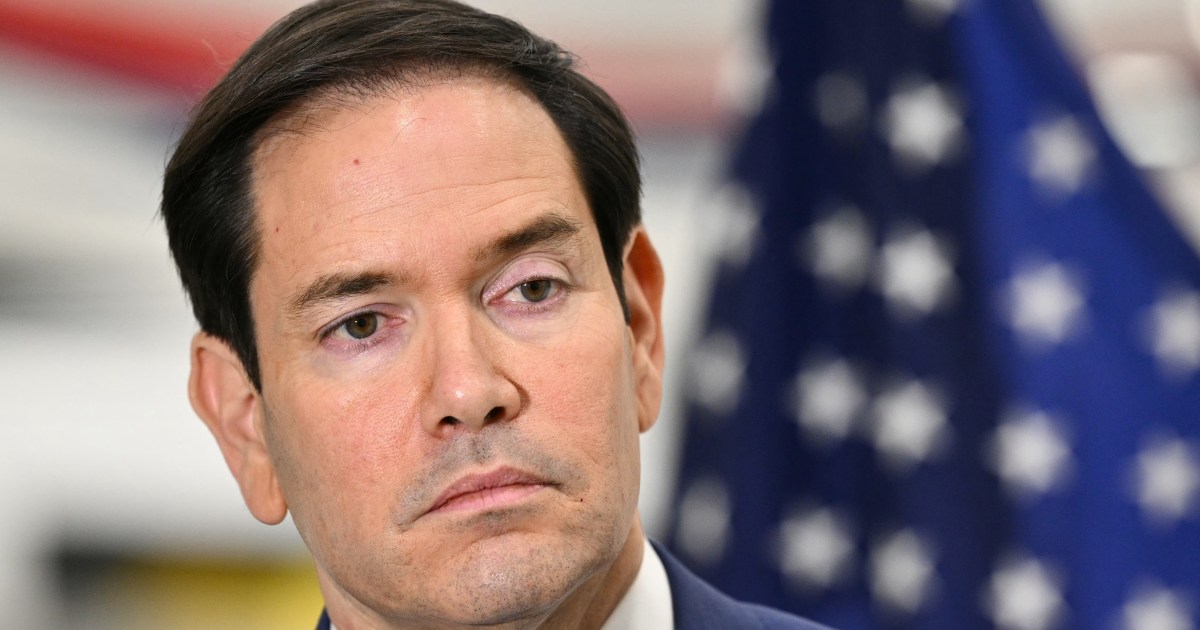US Designates Venezuela's 'Cartel de los Soles' a Terrorist Group Amid Escalating Pressure on Maduro
The United States has escalated its campaign against Venezuelan President Nicolas Maduro by officially designating the "Cartel de los Soles" (Cartel of the Suns) as a "terrorist organization." This move, announced by the US Department of State on November 16, marks a significant increase in pressure, coming as Washington reportedly considers military options in Venezuela.
Unpacking the "Cartel de los Soles" Designation
The "Cartel de los Soles" is a term commonly used by Venezuelans to describe a network of high-ranking officials allegedly involved in corruption and drug trafficking. The US government claims President Maduro himself oversees this "cartel," with members reportedly including individuals within his inner circle and the military. Maduro, however, vehemently denies any personal involvement in drug trafficking and disputes the very existence of such a cartel. Venezuela's Ministry of Foreign Affairs condemned the US action as a "ridiculous lie" fabricated to justify future military intervention.
According to the US State Department, the Cartel de los Soles, alongside the Venezuelan Tren de Aragua criminal gang, is responsible for extensive drug trafficking operations reaching the US and Europe. InsightCrime, a leading think tank, explains that the name "Cartel de los Soles" originated in the 1990s from investigations into Venezuelan generals and senior officers, identified by their sun insignias, for drug-related crimes. Jeremy McDermott, co-director of InsightCrime, clarified to CNN that it isn't a traditional, vertically structured drug cartel but rather "a series of normally disconnected cells embedded within the Venezuelan military." It's notable that neither the US Drug Enforcement Administration nor the United Nations Office on Drugs and Crime has ever formally described the Cartel de los Soles as a distinct drug-trafficking organization in their annual reports.
Implications of a "Terrorist" Label
While the US Department of the Treasury had previously sanctioned the group, the new "foreign terrorist organization" (FTO) designation grants the US government broader powers. This classification criminalizes any form of "support" for the Cartel de los Soles, barring its representatives from entering the US and making it illegal to provide funds to the group. Crucially, given the alleged links to the Venezuelan military, this could potentially deter foreign companies from conducting business with the Venezuelan state. The FTO status also enables diplomatic and financial penalties, such as asset freezes.
Analysts suggest that this FTO designation is a critical step in bolstering the political and legal rationale for potential US military action in Venezuela. It allows Washington to frame any intervention as a counter-narcotics effort, interwoven with a broader campaign aimed at governmental change in the country.
Why the US is Intensifying Pressure
The Trump administration has adopted an increasingly confrontational stance toward President Maduro, especially following his disputed re-election in January, which was widely accused of fraud and saw his main political rival, Maria Corina Machado, banned from running. Despite conducting military strikes on Venezuelan boats suspected of drug trafficking in the Caribbean and eastern Pacific, Washington has not publicly shared direct evidence of Maduro's personal involvement in drug trafficking. Nevertheless, it continues to assert that Maduro heads the Cartel de los Soles and is associated with Tren de Aragua.
In July, then-National Security Adviser and Secretary of State, Marco Rubio, explicitly accused Maduro of leading the "designated narcoterrorist organisation Cartel de los Soles" and being responsible for trafficking drugs to the US and Europe. By August, the reward for information leading to Maduro's arrest had doubled to $50 million. Many observers, including Maduro himself, interpret this characterization as a strategic maneuver by the US to facilitate his removal from power. Maduro has accused the US of "fabricating a new war" and a "vulgar, criminal and totally fake" narrative to reshape the Caribbean's political landscape, potentially destabilizing US adversaries like Cuba and Nicaragua by cutting off subsidized Venezuelan oil.
US Military Posturing
Since September, the US has significantly ramped up its military presence in the Caribbean, launching air strikes on alleged drug-trafficking vessels off the coasts of Venezuela and Colombia. This represents the largest military deployment to the region in decades, reportedly resulting in at least 83 fatalities. Furthermore, several warships, including the advanced nuclear-powered super-carrier USS Gerald R Ford, have been dispatched to the Caribbean Sea.
However, defence experts like Mark Cancian from the Centre for Strategic and International Studies question the suitability of assets like the Ford for counter-drug operations, noting its primary design for attacking adversaries at sea or on land. This show of force echoes a long history of US military interventions and coup attempts across Latin America, often driven by concerns over hostile influences near US borders. The relationship between Washington and Caracas has been fraught with tension since Hugo Chavez's rise, deteriorating further under Maduro's leadership after 2013.
What Lies Ahead?
President Trump has indicated he has "sort of" decided on his approach to Venezuela but has not yet revealed specifics. When questioned about deploying US troops, he stated, "I don’t rule out that. I don’t rule out anything." He also mentioned potential "discussions" with Maduro, though details remain scarce. Adding to the uncertainty, six international airlines recently suspended flights to Venezuela following a US warning about a "potentially hazardous situation" in the country. The international community watches closely as the situation unfolds, with the FTO designation marking a pivotal point in the ongoing US-Venezuela standoff.

